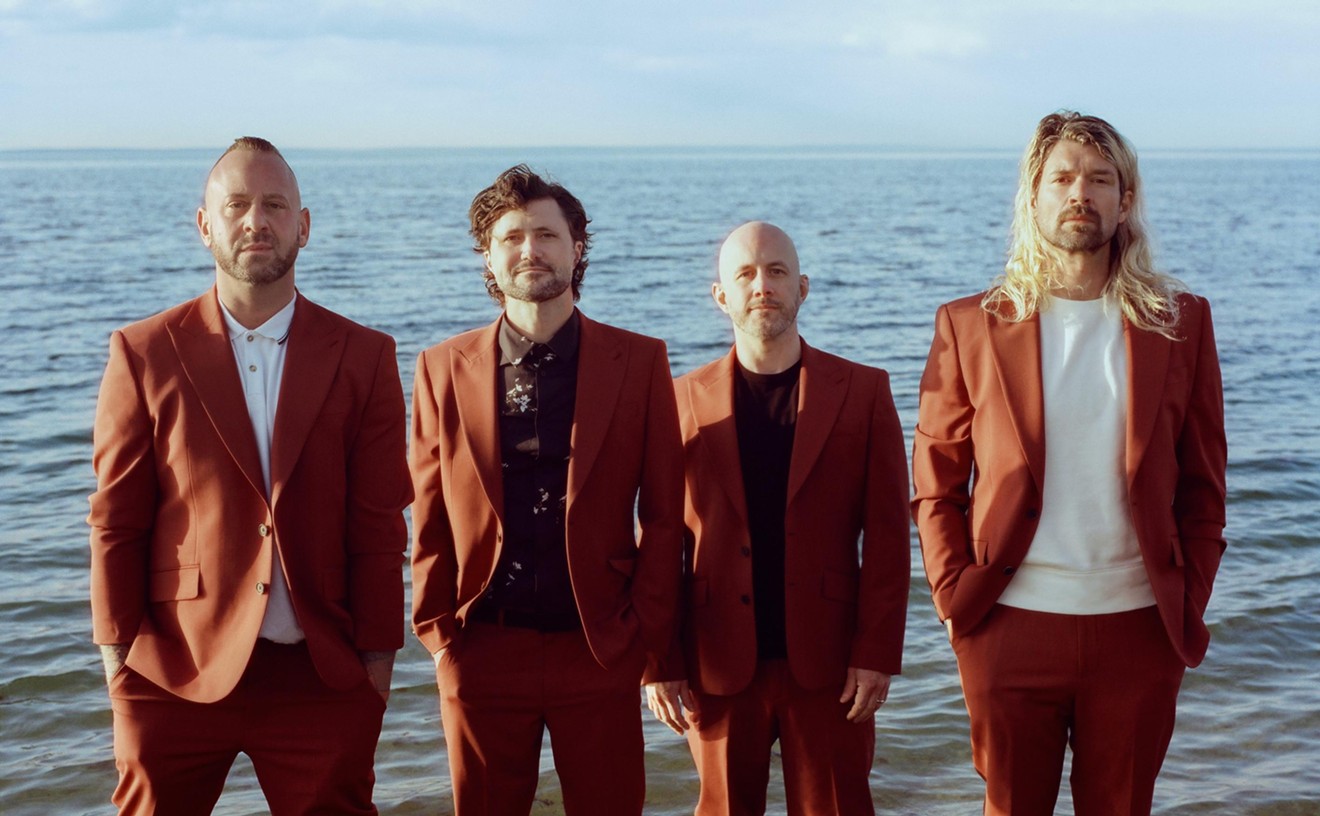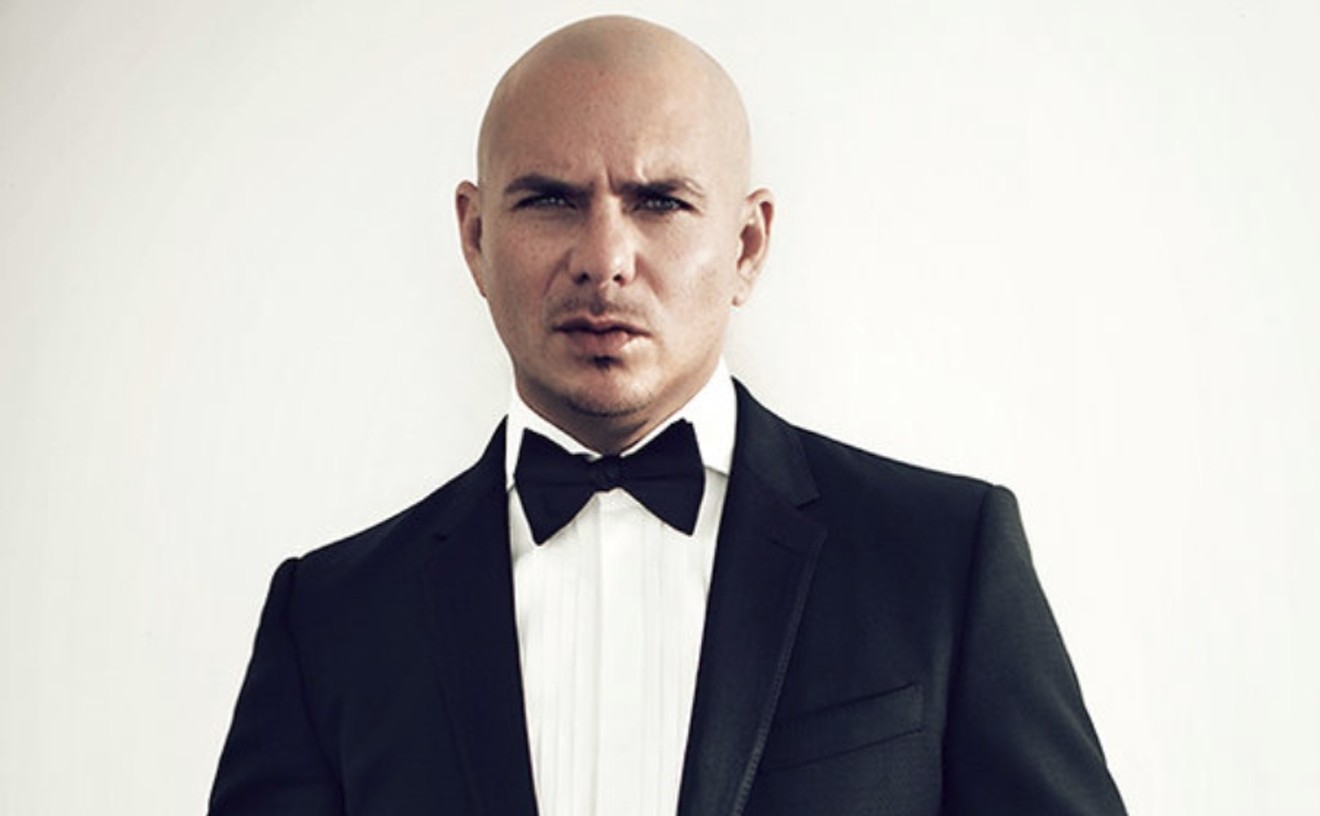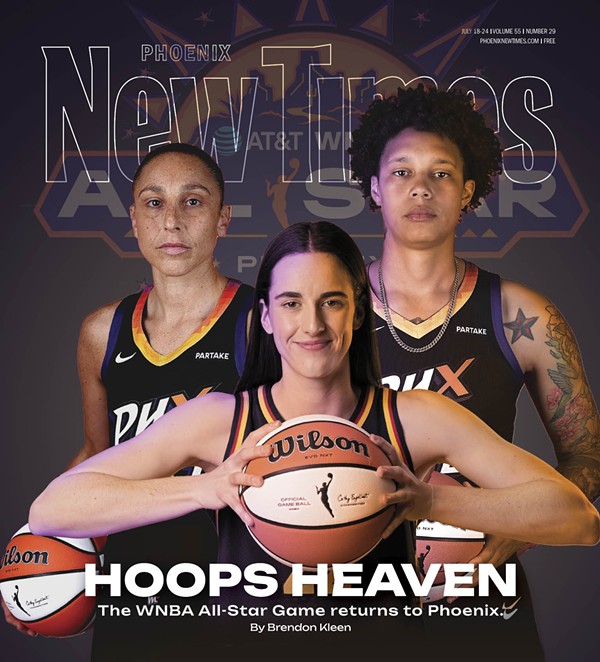Headlines struck familiar tones on June 16. The Diamondbacks defeated the San Francisco Giants 3-2, after Justin Upton nailed a 10th inning walk-off home run. Broadway Road was closed between Rural Road and Mill Avenue. A Glendale woman was arrested on charges of pimping out a 17-year-old girl. And a Mesa political activist died in a house fire. Sounds like business as usual in the Valley. Except that last headline didn't quite tell the whole story.
In the late '50s, Allan made his way to coastal Africa where he became enamored with the ceremonial sounds used by various tribes. Upon returning to Hollywood he became hell bent on finding a drummer with whom he could reproduce a sound that was more palatable to American consumers. Enter Chaino.
The pairing of Allan and Chaino was an unlikely one at the time. On the one hand, you had Allan, a white balladeer from the Frank Sinatra age, and on the other was Chaino, a lean black percussionist known for his primal drubbing of congas, bongos, and steel drums. He went on to produce several albums with Chaino, creating a sound that Allan said "Americanized" the primitive drumming of African music.
Fans of the exotica genre reveled in these percussion masterpieces that combined rhythmic tribal beats with guttural grunts, tropical pings, twangy guitar picks, and sassy horns.
One such fan was resident music historian and avid record collector John "Johnny D" Dixon, of local radio station KWSS 106.7 FM. Dixon eventually found himself on Allan's porch from time to time, and helped engineer a revival of sorts with the re-release of Kirby Allan Presents ... Chaino, Africana and Beyond in the late '90s.
"When I realized he was from Arizona, I started collecting his records," Dixon says in a telephone interview. "I had seen the [record] covers over the years and they were always really groovy looking with some African warrior on it, so I was familiar with the music before I even met him."
"Through my connections I got him a deal for his early Chaino masters and Dionysus [Records] put out a couple of CDs of his music over the past 12 years or so."
Over time, the relationship between Allan and Chaino dissolved and the two parted ways. While Allan went on to be a vocal critic of local government, Chaino dipped in and out of obscurity, occasionally surfacing in a movie or two. He died in 1999 shortly after being diagnosed with a brain tumor.
In this 1961 movie trailer, you see Allan and Chaino side by side beating on bongos. (Scope it out at the 40 second marker.)
As an 83-year-old man, Allan's music producing days may have been well behind him at the time of his death, but that didn't stop him from keeping an eye out for new talent. "He was always one of those guys that was aware of what was going on musically," Dixon explains. "He was always kind of looking for the next Chaino."
"I talked to Kirby two weeks before the fire and he had this new guy he wanted to get in a studio to re-record some of his old tracks to kind of hip it up for today's market," Dixon says.
"He was still hustling Chaino until the very end."










